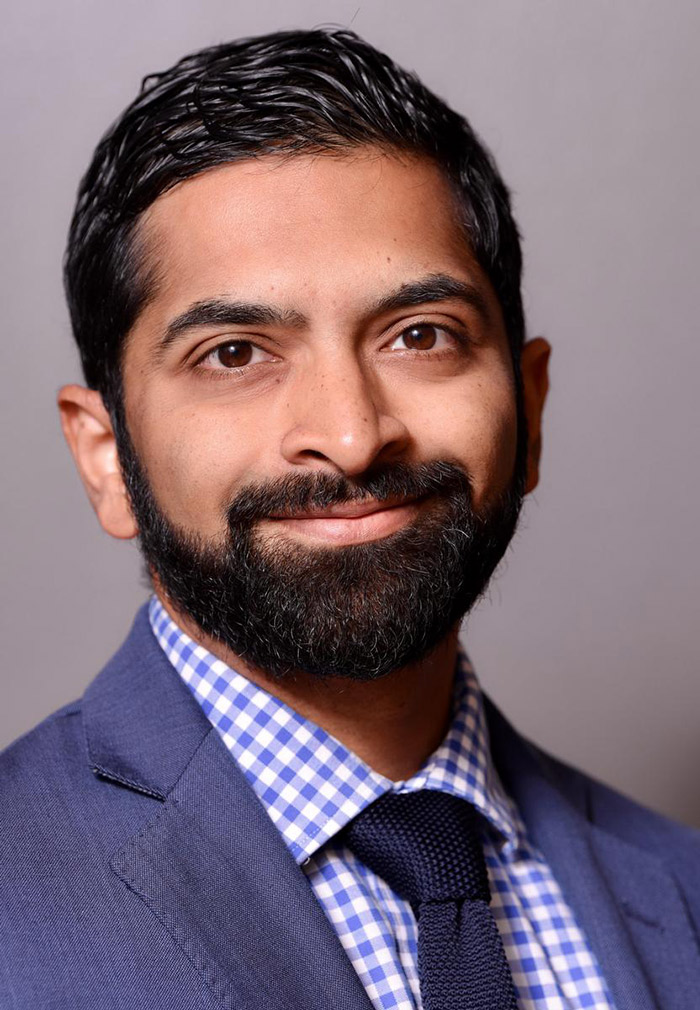

New research from Catholic University Professor Brandon Vaidyanathan explores the link between religious involvement and mental health during the COVID-19 pandemic. Vaidyanathan, chair of the Department of Sociology, worked closely with Research Associate Chris Jacobi on analyzing the data, and they are collaborating with a team of students and faculty to publish research findings.
“This is a timely topic because we’re trying to discover how faith communities are impacted by the pandemic and our focus is especially on mental health,” Vaidyanathan said.
The study, funded by the John Templeton Foundation, looked at Catholic, Evangelical, African American Baptist, Mormon, Reform and Orthodox Jewish, and Hindu congregations. Vaidyanathan surveyed 12 different religious congregations between October to December 2020 to examine how faith communities have been affected by the pandemic and whether or not religious involvement has helped individuals cope mentally. More than 1600 participants in D.C., Maryland, Virginia, and Texas took the survey. The study also looked at how religiosity has been affected by the pandemic and whether or not religious involvement affects an individual’s willingness to be vaccinated.
“Typically people who are active in faith communities tend to have higher levels of well-being and we find that to be the case even during the pandemic,” Vaidyanathan said. “Some are doing better, some worse, and we’re trying to look at the different factors affecting that.”
Many of the survey respondents included the people who are most active in faith communities — older, educated women who are involved in volunteer programs or other ministries.
“The respondents don’t represent your average American, but they do represent your average churchgoer,” Vaidyanathan said. “It’s a study of religious people and an important thing to understand is how do religious people experience the pandemic?”
Many survey respondents said they continued to attend religious services when they were able and reported that their connection to their community remained strong. The majority reported no change in their religious practices; in fact, 35% reported that their spirituality increased during the pandemic because they were able to pray or meditate more often and 17% said they were devoting more time to reading sacred scripture.
“We suspect this is probably true for a lot of faith communities,” Vaidyanathan said. “Among those who are active in their faith communities, the pandemic has increased rather than decreased religiosity and that’s an encouraging finding for faith leaders.”
In talking to religious leaders, Vaidyanathan learned that some faith communities experienced increased attendance at religious services after offering online religious programs and services.
“I do think there’s a contingent of people who may have not been that religious before the pandemic but are interested now because they can attend online events,” Vaidyanathan said. “Some faith leaders have reported growing numbers of people, sometimes even from other countries, attending their online services and classes.”
When it comes to mental health, survey respondents expressed that they have felt great anxiety about themselves or a loved one contracting COVID-19. Although less than 20% said the pandemic had worsened their mental health, 60% reported feeling increased isolation since the pandemic.
Vaidyanathan and Jacobi found that individuals benefited from mental health support from their faith leaders, as well as mental health support groups that allowed them to speak openly about their challenges with peers. Those types of programs are rare in many faith communities, Vaidyanathan said.
A key finding is that the frequency of sharing problems with congregation members is significantly associated with better mental health, but only a small percentage of the sample actually shared problems with others in their community. “We find that in general, the people who are most involved in faith communities — where you think they’d be closely connected with each other — actually seem quite disconnected,” Vaidyanathan said. “Faith communities need to become places where people are more comfortable sharing problems with each other, especially during the pandemic.”
The study also looked at the relationship between a person’s religious involvement and their willingness to be vaccinated. Here, Vaidyanathan and Jacobi observed statistically significant racial differences, which were not explained by either religiosity or trust in scientific information about the vaccine. However, they note it is important to keep in mind that attitudes towards the COVID-19 vaccine are changing daily.
The researchers did not find any prevalence of conspiracy theories about vaccines in these religious communities. They also found the majority of participants supportive of safe public behaviors like wearing face coverings and social distancing.